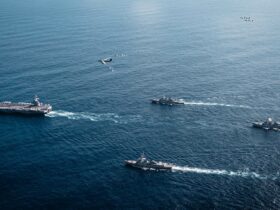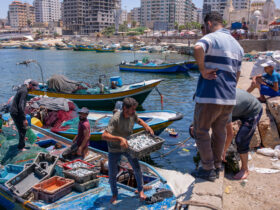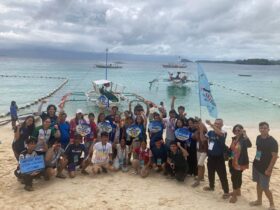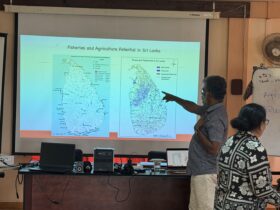Recommendations made by International Collective in Support of Fishworkers (ICSF).On Marine Protected Areas: Small-scale fishing community perspectives.
On 8 and 9 February 2008, the International Collective in Support of Fishworkers (ICSF) organized a two-day workshop on Social Dimensions of Marine Protected Area (MPAs), with specific relation to fishing communities. The six studies facilitated by ICSF in India, South Africa, Brazil, Mexico, Thailand and Tanzania, drawing on on-the-ground experiences of fishing communities, were presented at this workshop. A study undertaken by WALHI in Indonesia drawing on five MPA experiences in Sulawesi and Komodo- NTT, and experiences on initiation and implementation of protected area programmes from France and Spain were shared. Inputs were received as well from the representative of the World Forum of Fisherpeople (WFFP) present. The issues identified, and related proposals, draw from the discussions at this workshop. These are:
1. Prioritizing process: Parties to the Convention on Biological Diversity (CBD) have set themselves a target of bringing at least 10 per cent of the world’s marine ecoregions under protection by 2012. While conservation initiatives certainly need an impetus, we need to be aware that in the quest for meeting quantitative targets, the nature and quality of community participation in governance is being compromised, curtailing the very effectiveness of this programme of work. In our experience, the process of ensuring effective and meaningful community participation in management and protected area implementation is challenging, and needs, above all, time. However, it should be recognized that only genuine participatory processes would ensure long-term and sustainable outcomes, balancing biodiversity conservation, with environmental and social justice.
2. Human rights: Undemocratic and non-transparent processes in protected area implementation, particularly top-down, target-oriented MPA implementation, supported by governments, financially powerful conservation NGOs and international financial institutions, are displacing and undermining livelihoods of fishing communities, compromising in many instances the human rights of these communities. This is especially the case where the focus is on no-take reserves rather than on conservation within a sustainable use framework. If coastal and marine conservation initiatives are to be effective from a biodiversity, livelihood and poverty alleviation perspective, the starting point for conservation initiatives must be fishing and other marine resource dependent communities and their organizations themselves.
3. Community conservation initiatives: In this context, we need to be aware that fishing communities across the world have been taking a variety of initiatives, traditionally and more recently, to protect and manage their resources, within a sustainable use framework, including through establishing protected areas. It is essential to adopt a dynamic and flexible approach to defining and recognizing protected areas (in keeping with decision VII/24). Community initiatives need to be seen as conservation initiatives in their own right and accorded due legal recognition and support. Recently introduced MPAs have often been imposed on these systems, undermining them as well as the social institutions that sustain them. In contrast, in countries such as in Brazil, Spain and France, community-initiated and community- driven processes that have drawn on traditional knowledge of local fishing communities, have received support from government, and are proving effective.
The following are specific proposals for WGPA2:
1. Participation in PA-related processes: The direct participation of fishing community representatives in all CBD workshop and meetings related to protected areas should be facilitated. In order to make this participation meaningful and effective, preparatory processes prior to meetings need to be organized and supported, and translation of documents/interpretation ensured. A policy on effective participation of indigenous and local fishing communities in such meetings needs to be developed and implemented.
2. Governance and capacity building: To increase awareness on the provisions of PA programme of work and to ensure its implementation, particularly of Programme Element 2, there is need to organize specific capacity building workshops on governance and social issues, with participation of indigenous and local fishing community representatives, governments, and natural and social scientists, at the national and regional level. Such processes should ensure that management plans developed for MPA implementation, which presently tend to be biological in focus, have a specific socioeconomic focus.
3. Reporting:
- Reporting by governments on protected areas implementation should specifically include reporting progress achieved on implementing Programme Element 2 of the PA POW (in keeping with decision VIII/24, para 4) and on meeting MDG targets. The reporting format needs to be accordingly be modified to enable qualitative and meaningful reporting on these goals.
- National reports need to be prepared through a participatory process, where communities in protected areas are part of the process of monitoring effectiveness of protected area implementation. Civil society needs to be supported in conducting evaluation of PAs.
- There is need for specific reporting on marine protected areas. This would also enable governments to review governance frameworks in use for management of marine protected areas, given that, in several countries, terrestrial frameworks and institutions are used for the management of marine protected areas, despite the unique nature of the coastal and marine ecosystems as well as the social institutions that relate to these resources.
4. Socioeconomic data: While the initiative to develop the World Database on Protected Areas is commendable, it is imperative that gender-segregated baseline socioeconomic data is be part of the reporting framework that goes to develop this database.
5. Toolkits: There is need to develop specific toolkits for evaluation and implementation of marine protected areas, suited to the specific context of fishing communities and the marine environment, and with a focus on socio-economic components.
6. Social and cultural criteria: There needs to be greater focus on social and cultural aspects of protected area planning and implementation, balancing the current predominant focus on biological aspects. Local, traditional and indigenous knowledge should be included in all stages of the identification, planning and implementation of conservation and management initiatives, and in monitoring and evaluating effectiveness of these initiatives. In this context it is unfortunate that the regional capacity-building workshops on Gap Analysis and Management Effectiveness did not make any attempt to integrate social and cultural aspects and knowledge systems.





Leave a Reply